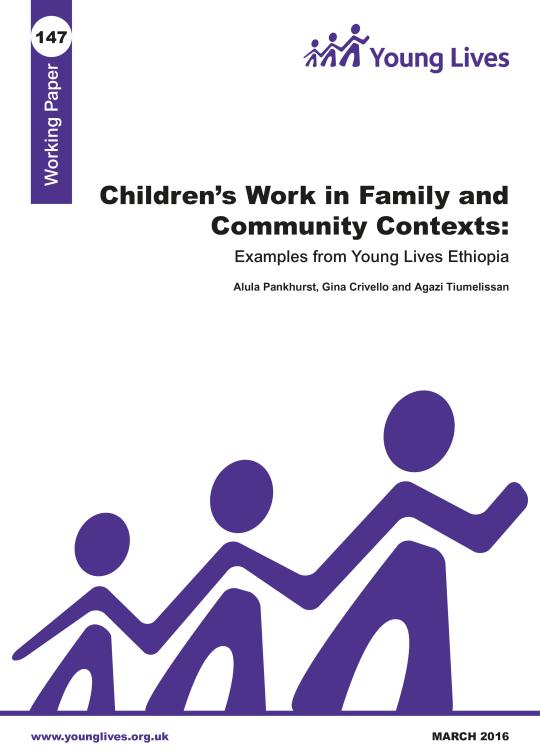
Breadcrumb
Children’s Work in Family and Community Contexts
National and international policies view children’s work as a child protection issue and a threat to social and economic development. Whether working harms or supports children’s well-being is hotly debated. In Ethiopia, most boys and girls work, whether paid or unpaid. Rarely are children’s own accounts of their work considered by policymakers. This paper reports on findings from a qualitative study of children’s working lives in three Ethiopian communities. It draws on evidence given by children and asks what motivates them to work; what are the risks, harms and benefits that children associate with different types of work; and what impact working has on their social relations and identities.
Although the need for income goes a long way towards explaining why many children in Ethiopia work, the reasons are more complex and cannot be reduced to poverty alone.
Boys and girls begin working from around the age of 5; the quantity and complexity of their work increase with age. Gender differences become more marked as children get older, particularly in adolescence. Most work that children do entails some risks as well as benefits, and good and bad features can exist side by side in the same work. For example, many children use their earnings to cover the costs of schooling, yet they find it a major challenge to combine the demands of school with work inside and outside the household. Children rely on their social networks to get started in work, to change jobs and migrate for work, and to deal with problems they may encounter in their work.
These findings show that policies need to take into account the different risks faced by boys and girls at different ages and the specific support they need. Attempts to protect children should not lose sight of the role of work in their learning, development, aspirations and relationships. Social protection policies can help vulnerable children by insuring households against death, illness and other shocks. Flexible learning arrangements can enable working children to continue with their schooling.

